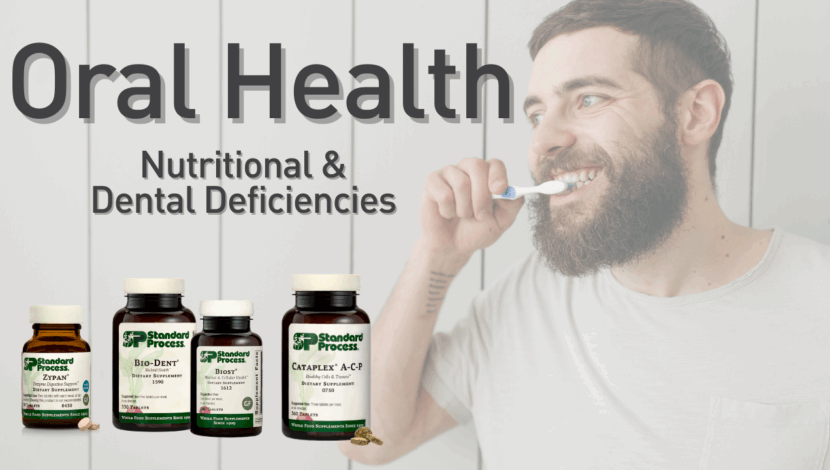What Is Neuroinflammation?
Neuroinflammation happens when the brain’s immune cells, known as microglia and astrocytes, become too active. While a little inflammation helps protect the brain, too much can damage brain cells and disrupt normal brain function. This can lead to mood changes and mental health issues like depression and anxiety.
If left untreated, neurodegeneration can worsen and lead to dementia, a condition marked by memory loss, confusion, and difficulty with daily tasks. Over time, brain cells die, impairing cognitive and motor functions. Early treatment is key to slowing this decline and maintaining quality of life.
How Does Neuroinflammation Affect Mood?
•Damages Brain Cells – Too much inflammation releases harmful chemicals that can damage or even kill neurons (brain cells).
•Messes With Brain Chemicals – Inflammation can throw off the balance of important brain chemicals like serotonin and dopamine, which are responsible for regulating mood.
•Reduces BDNF Levels – Brain-Derived Neurotrophic Factor (BDNF) is a protein that helps keep neurons healthy and supports brain flexibility. Inflammation can lower BDNF, making it harder for the brain to repair and grow.
Natural Ways to Fight Neuroinflammation
Making some changes to your daily habits can help reduce neuroinflammation.
Healthy Diet
•Eat Omega-3 Rich Foods – Such as salmon, nuts (including walnuts) and flaxseeds.
•Antioxidant-Rich Foods – Berries, dark leafy greens (get your salads in), and brightly colored vegetables help reduce inflammation.
•Avoid Processed Foods – Foods high in sugar and refined carbs can increase inflammation in the brain and body.
Exercise Regularly
•Physical activity reduces inflammation and boosts BDNF levels, helping the brain function better. Aim for at least 30 minutes of exercise most days of the week.
Manage Stress
•Chronic stress can increase inflammation. Try activities like meditation, yoga, or deep breathing to lower stress levels.
Get Enough Sleep
•Sleep is essential for brain health. A good night’s sleep allows the brain to repair itself and reduces inflammation.
Introducing NeuroRegenex!
To help people take advantage of these powerful herbs, MediHerb has created a new product called NeuroRegenex. This supplement is designed to support brain health and reduce neuroinflammation using a unique blend of herbs.
What Makes NeuroRegenex Special?
NeuroRegenex leverages the synergy of four key herbs—Gotu Kola, Turmeric, Boswellia, and Bupleurum—to support brain health and reduce neuroinflammation. It uses FenuMAT™ Technology, developed under the leadership of Kerry Bone at MediHerb, to improve the absorption of curcuminoids and boswellic acids.
Proprietary extracts CurQfen™ (curcumin) and BosQfen™ (Boswellia) extracts, further enhance the formula’s effectiveness, making NeuroRegenex a top choice for cognitive support and brain health.
Using Natural Herbs to Fight Neuroinflammation
One way to reduce neuroinflammation is by using certain herbs that have been shown to support brain health and reduce inflammation.
The following herbs have been used traditionally for centuries and are now supported by scientific research for their benefits in reducing neuroinflammation.
Turmeric (Curcuma longa)
•How It Helps – Contains curcumin, a powerful anti-inflammatory compound. Curcumin helps reduce brain inflammation, boosts BDNF levels, and protects neurons from damage.
Boswellia (Boswellia serrata)
•How It Helps – Boswellia contains compounds that reduce neuroinflammation and protect neurons from further damage. It can also improve mood and cognitive function.
Gotu Kola (Centella asiatica)
•How It Helps – Gotu Kola boosts brain circulation, supports neuron growth, and improves memory and cognitive function.
Bupleurum (Bupleurum falcatum)
•How It Helps – It helps protect brain cells and boosts brain-derived neurotrophic factor (BDNF), which supports learning, memory, and overall brain health.

The Targeted NeuroRegenex Protocol
NeuroRegenex is designed with a phased approach to tackle neuroinflammation and support whole-body wellness. By following these carefully structured phases, you can address neurodegeneration aggressively in the early stages while maintaining long-term brain health and reducing inflammation throughout the body. Whether you’re managing existing issues or focusing on prevention, the phased protocol ensures you receive the optimal dosage at each stage to protect both your cognitive and musculoskeletal health.
Phase 1: Intensive Phase (6 tablets/day for 3 months)
During this phase, the high dosage helps aggressively target neuroinflammation, which is often at the root of neurodegenerative conditions. By supporting both brain and whole-body inflammation, the herbs in NeuroRegenex also aid in reducing musculoskeletal discomfort and improving overall mobility.
•Dosage: 6 tablets per day
•Duration: 3 months
•Total Bottles Needed: 9 bottles
Phase 2: Maintenance Phase (4 tablets/day for 2 months)
As you move into the maintenance phase, the focus shifts to sustaining the progress made during the intensive phase by continuing to reduce inflammation and promote neuroprotection. This dosage not only supports cognitive function but also continues to ease whole-body inflammation, benefiting joint health and muscle recovery.
•Dosage: 4 tablets per day
•Duration: 2 months
•Total Bottles Needed: 4 bottles
Phase 3: Long-Term Support (2 tablets/day ongoing)
The long-term support phase is designed to maintain brain health, prevent future neurodegeneration, and keep inflammation at bay. By promoting ongoing whole-body balance, this phase ensures continuous support for both mental clarity and musculoskeletal health, preventing flare-ups in chronic inflammation-related conditions.
•Dosage: 2 tablets per day
•Duration: Ongoing
•Total Bottles Needed: 1 bottle/month

Conclusion
Neuroinflammation may be a hidden cause of mood disorders like depression and anxiety. By addressing neuroinflammation through diet, movement, sleep and natural herbs like Turmeric, Boswellia, Bupleurum, and Gotu Kola—that are in innovative products like NeuroRegenex—you can take steps to support your brain health naturally.
Always remember to talk to a healthcare professional before starting any new supplement or treatment.
References
Felger, J. C., & Miller, A. H. (2016). Inflammation as a Mechanism in Mood Disorders – Review and Recommendations for Future Research. Biological Psychiatry, 78(9), 603–615. doi -10.1016/j.biopsych.2015.05.015
Ahmed, H., Mohamed, E. A., El-Dsoki, S. (2014). Evidences for the promising therapeutic potential of Boswellia serrata against Alzheimer’s disease: Pre-clinical study. International Journal of Pharmaceutical and Pharmacological Sciences, 6(11), 384-392.
Alluri, V. K., Kundimi, S., Sengupta, K., Golakoti, T., & Kilari, E. K. (2020). An anti-inflammatory composition of Boswellia serrata resin extracts alleviates pain and protects cartilage in monoiodoacetate-induced osteoarthritis in rats. Evidence-Based Complementary and Alternative Medicine, 2020, 7381625.
Bone, K. M., & Mills, S. Y. (2013). Principles and practice of phytotherapy: Modern herbal medicine (2nd ed.). Elsevier.
Chopra, R. N., Chopra, I. C., Handa, K. L., & Kapur, L. D. (1958). Chopra’s indigenous drugs of India (2nd ed.). Academic Publishers.
Günther, B., & Wagner, H. (1996). Quantitative determination of triterpenes in extracts and phytopreparations of Centella asiatica (L.) urban. Phytomedicine, 3(1), 59-65.
Park, W. H., Kang, S., Piao, Y., Pak, C. J., Oh, M. S., & Kim, J. (2015). Ethanol extract of Bupleurum falcatum and saikosaponins inhibit neuroinflammation via inhibition of NF-κB. Journal of Ethnopharmacology, 174, 37-44.
Su, J., Pan, Y. W., Wang, S. Q., Li, X. Z., Huang, F., & Ma, S. P. (2020). Saikosaponin-d attenuated lipopolysaccharide-induced depressive-like behaviors via inhibiting microglia activation and neuroinflammation. International Immunopharmacology, 80, 106181.
Xu, Y., Ku, B., Tie, L., Yao, H., Jiang, W., Ma, X., & Li, X. (2006). Curcumin reverses the effects of chronic stress on behavior, the HPA axis, and BDNF expression. Brain Research, 1122(1), 56-64.
Arkay Natural Ingredients. Technology [Internet]. Kerala: Arkay Natural Ingredients; 2021 [cited 2022 Feb 09]. Available from: https://www. curqfen.net/technology/
Kumar D, Jacob D, Subash PS, Maliakkal A, Johannah NM, Kuttan R, et al. Enhanced bioavailability and relative distribution of free (unconjugated) curcuminoids following the oral administration of a food-grade formulation with fenugreek dietary fibre: a randomised double-blind crossover study. J Funct Foods. 2016 Apr 1;22:578-87.
Sudheeran, S. P., & Maliakel, B. (2016). Safety, tolerance, and enhanced efficacy of a bioavailable formulation of curcumin with fenugreek dietary fiber. Journal of Clinical Psychopharmacology, 36(3), 236-243.*These statements have not been evaluated by the Food and Drug Administration. These products are not intended to diagnose, treat, cure, or prevent any disease.
Copyright © 2025 Performance Chiropractic, All rights reserved.





